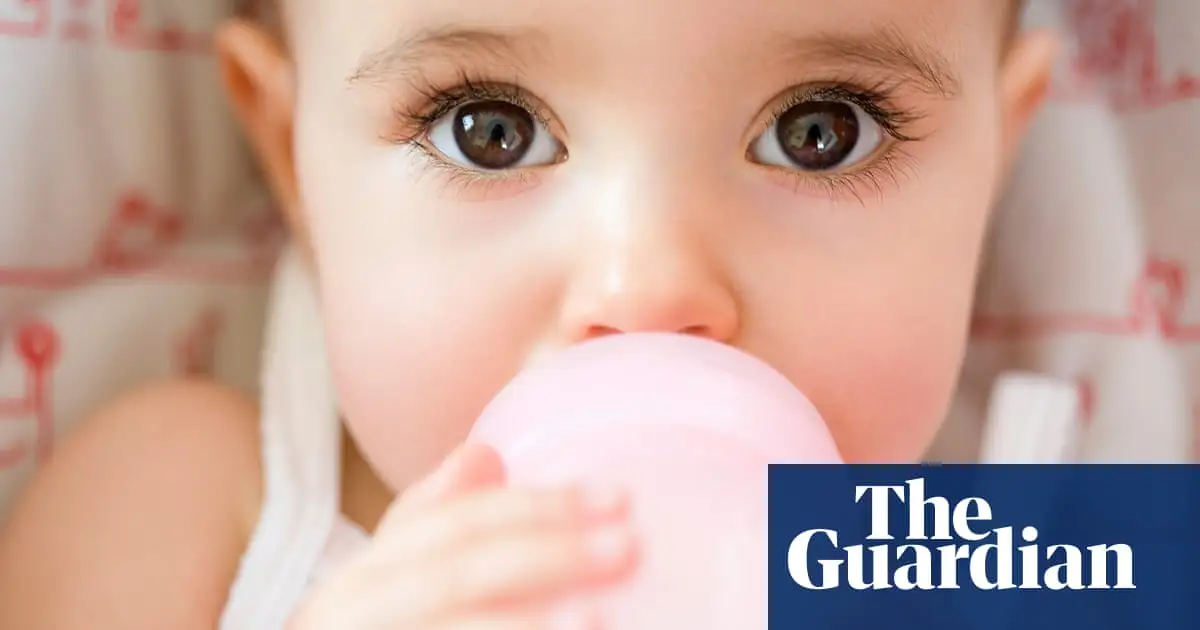The government could offer its own low-cost baby formula under a brand such as the NHS to combat the high prices and lack of choice in the market, the UK competition watchdog has suggested.
The Competition and Markets Authority (CMA) said another “backstop” measure could be for the government to regulate and set a price or profit-margin cap on retailers as a way to bring prices down for parents more quickly.
The potential measures formed part of the CMA’s interim report on the infant formula market after the watchdog identified that a lack of competition in the market had led to soaring prices, taking advantage of an ingrained belief among parents that higher cost equates to better quality for their children.
The CMA report set out a number of potential recommendations including extending the ban on the advertising of infant formula to follow-on formula, or going as far as “prohibiting all brand-related advertising”.
[…]
The provisional findings, which will feed into a final report to be published early next year, include some backstop measures that the CMA said were not actively recommended but that the government could make “with the aim of bringing prices down directly”.One option was for the government to procure its own infant formula from a third-party manufacturer at a competitive price and sell it under an established name, such as the NHS, or invest in creating a new brand for the market.
[…]
Another option is to introduce regulations to place a maximum price cap on baby and infant formula, or establish a profit-margin cap, which the Greek government did earlier this year with the aim of making products more affordable.
I’d doubt the NHS would go for this. Our experience is that they heavily promote breastfeeding and seem to put as much resistance into using formula as possible.
This would seem at odds with their current approach of trying to get more people to breastfeed.
The important thing about NHS care is that half the midwives are completely insane, and they all contradict each other. They have basically no medical training and are just meant to get someone qualified if anything goes wrong. Instead they go mad with power and use it to bully first time parents into doing what they say.
Our midwife was insistent that if there wasn’t enough breast milk immediately after birth we had to switch to bottlefed. I don’t think you can figure out the official NHS approach based on anything a midwife says.
My wife referred to them as “the breast feeding Nazis”, which brought delightful images to mind.
So if there’s not enough breast milk, what would be the next steps?
- Find and use the donated breast milk bank
- ???
- ???
- Use formula milk
Just calm down and wait. You don’t actually need massive amounts of milk from the start, and it takes time for everything to kick in.
If there’s still not enough milk, you can mix bottle and breast.
Some people genuinely need to bottle feed, but that’s not what was going on in our case.
If there’s not enough breastmilk we’d be extinct.
I think they should do it and print breastfeeding class info on the container if they really want to
Apparently, one issue is not being able to price promotions on baby formula which has reduced competition and kept prices high.
I don’t know if it is being done but in medication specific formulations have codes so you can compare products (it highlights Nurofen’s rebranding and varying the price on identical painkillers) and that could work here. The news reports say parents go for the big name brands because they want guaranteed quality and something like that code system would help reassure parents that a cheaper brand is just as good.
Our midwife from classes before our daughter was born explained it to us that all formula has to meet certain standards and have certain ingredients in it to qualify for sale in the UK, so you can guarantee each brand is providing a recommended amount of nutrition due to this.
We ended up going with Aldi’s formula, and if the other brands brought their prices more in line with that then I don’t see it as a bad thing. Charging through the nose for something that babies NEED if they aren’t being breast fed is absolutely abhorrent.
More of this sort of thing! State shouldn’t be involved in the market of choice. But in the market of “no choice” it should absolutely step in and give people basic quality options to help prevent them being gouged.






